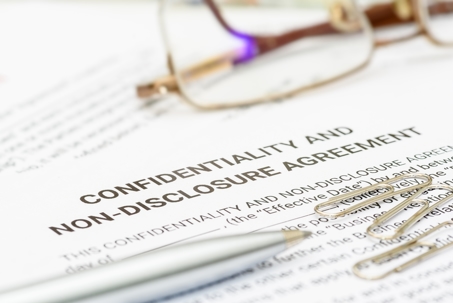How NDAs Enable Abuse in Hollywood
In Hollywood, silence isn’t always golden. Behind the glamour and flashing lights, countless people work under contracts meant to protect creativity—but sometimes, those same contracts are used to protect something much darker.
When someone’s voice is taken from them under legal threat, what’s really being protected?
Let’s take a closer look at how non-disclosure agreements (NDAs), while designed for confidentiality, have been used to keep abuse hidden.
What NDAs Are Supposed to Do
The Original Purpose
In theory, NDAs exist to protect ideas. Studios, production companies, and agencies use them to keep scripts, deals, and behind-the-scenes decisions private until the time is right.
That makes sense in a cutthroat industry where leaks can cost millions and derail careers. For many creatives, NDAs feel like a necessary part of protecting their work.
But that’s only part of the story.
What’s Actually Written In These Agreements
NDAs often include dense legal language most people gloss over. They outline what counts as “confidential,” how long the agreement lasts, and what happens if you break it.
But vague wording can make these documents dangerously flexible—sometimes broad enough to cover more than just trade secrets. In the wrong hands, these clauses become tools of silence. When someone tries to speak out about abuse, they can be reminded that doing so might violate the NDA they signed.
And that’s where the real harm begins.
How NDAs Keep Victims Quiet
Silencing Through Legal Threats
For many in the industry, NDAs have been used not to protect work, but to cover up harmful behavior.
If you’ve experienced harassment or abuse, you may have been told—explicitly or subtly—that speaking up could get you sued. In some cases, you might’ve signed an NDA without fully understanding what it could be used for later.
The fear of retaliation is real. Even if the law is on your side, the risk of losing future work or being blacklisted can be enough to stay quiet.
Emotional Toll and Professional Risks
NDAs don’t just create legal pressure. They wear people down emotionally, too.
Imagine carrying the weight of what happened to you, unable to talk about it publicly or even to close friends. That kind of silence can feel like a second violation—and it’s one that can linger for years.
When breaking the silence could mean breaking your career, many choose to say nothing. And abusers count on that.
The Industry-Wide Impact
The Pattern Behind the Silence
We’ve seen this pattern again and again—especially during the rise of the #MeToo movement. High-profile figures were able to operate without accountability for years because NDAs kept their accusers from coming forward.
Even when victims did speak out, NDAs often meant key details stayed hidden. As a result, real change became harder to achieve.
Why Whistleblowers Stay Quiet
It’s not just victims of direct abuse who stay silent. People who witness misconduct—assistants, colleagues, even other performers—may hesitate to speak up because they signed NDAs too.
That silence creates a chilling effect. It tells everyone in the room: “If you talk, you’ll pay for it.” And that message spreads fast.
Legal and Ethical Dilemmas
Breaking the Silence Isn’t Easy
Trying to get out of an NDA isn’t simple. Most were written to favor the employer or studio. Challenging them takes resources, legal support, and a willingness to risk backlash.
But that doesn’t mean it’s impossible.
Some NDAs can be fought. Recent laws have made strides to protect people from being silenced after experiencing harassment or discrimination. If you're stuck in one of these contracts, you have options—and rights.
Studios and Lawyers Have a Role to Play
There’s also an ethical side to this. Lawyers and studios who use NDAs to shield bad behavior aren’t just protecting their clients—they may be helping to perpetuate harm.
While it's legal to use NDAs to prevent leaks, it's not right to use them to hide misconduct. And increasingly, both courts and the public are beginning to recognize the difference.
Change Is (Finally) Happening
New Laws, New Hope
States like California have started to pass laws that limit how NDAs can be used, especially in cases involving sexual harassment or assault.
These legal changes are important—they give victims a way forward, and they send a message to the industry: You can’t use contracts to hide abuse forever.
Advocacy is Gaining Ground
Nonprofits, journalists, and survivors are pushing for more transparency and fairness. As stories come to light, more people are questioning the role NDAs play in keeping harmful behavior under wraps.
This growing awareness is forcing studios to rethink how they use these agreements—and what values they really stand for.
What’s Next for NDAs?
The future of NDAs in Hollywood will likely look very different.
As the industry evolves, there’s hope for agreements that still protect creative work—without silencing the people behind it. That balance is possible, but only if legal systems, lawmakers, and the public keep pushing for it.
Need Help Navigating an NDA?
If you’ve signed an NDA and are now wondering if it’s silencing your right to speak up, you’re not alone—and you do have options.
At Holtz Matthews LLP in Woodland Hills, CA, we help clients in the entertainment industry understand their rights and navigate tough legal situations with clarity and care. Whether you’re considering coming forward or just want to understand your NDA better, we’re here for you.
Call us today at (818) 791-0555 to get started. You deserve to have your voice heard—and protected.

